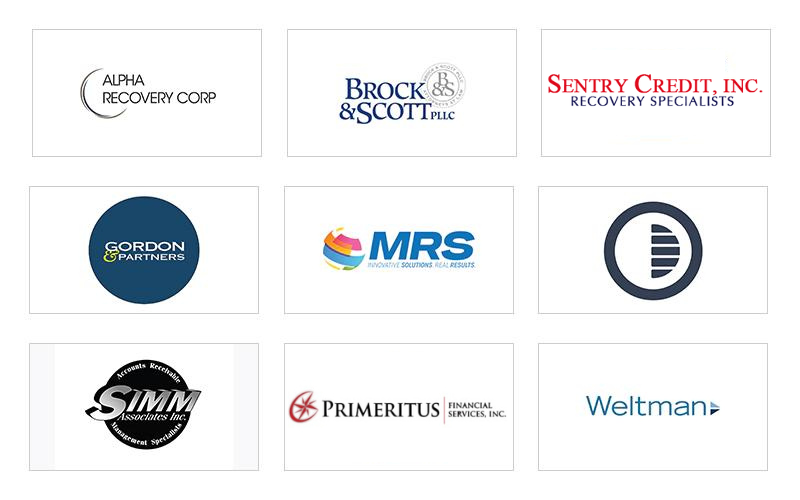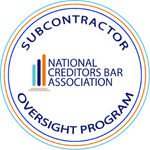The Ultimate Speech Analytics Buying Guide for Insurance Agencies
- September 18, 2023
- Category: Speech Analytics

Recommended Reading
To comply with Centers for Medicare & Medicaid Services (CMS) guidelines and carrier requirements, insurance agents must stay vigilant. The CMS Final Rule 2023 mandates the recording of all customer/prospect calls, making it a legal requirement rather than an optional practice. This means, all Medicare and Medicaid marketing calls, including interactions related to enrollment, must be recorded and stored for 10 years. The rule applies to healthcare field agents and professionals involved in enrolling beneficiaries in new Medicare Advantage and/or Part D plans. This includes individuals who engage in marketing and sales activities related to these programs.
Health insurance agencies must design a comprehensive call recording program, but it significantly affects their business costs, especially when they are drawing valuable insights from these recordings for quality assurance (QA) checks. But here is a problem. Despite employing experienced QA agents to analyze these calls, it is almost impossible to evaluate every call against carrier and CMS parameters. As a result, only a few sales enrollment calls undergo QA review, limiting coaching opportunities and resulting in missed non-compliant calls.
Typically, based on industry benchmarks derived from a database of 15 billion touchpoints, typically only 1-2 sales calls per agent per week are audited for QA purposes. These audits are conducted randomly, targeting at least 30 high-risk touchpoints that QA needs to evaluate during a sales call. It is also worth noting that despite these efforts, there is typically at least one non-compliant call per agent each day. Furthermore, due to resource constraints, a QA professional can only audit a maximum of four enrollment calls per day.
When executed effectively, QA can be more than just a cost center – a revenue enabler. It can drive targeted coaching insights for agents, leading to increased sales conversion rates. When QA is done right, there is an added focus on quality of sales calls in addition to compliance checks. This approach allows for the capture of valuable and qualitative insights that would otherwise be missed due to the time spent on scoring numerous high-risk parameters. These insights help refine the sales playbook by adding data-backed inputs for different parts of sales calls such as objection handling, agenda statements, rapport building, and closing techniques.
This is where speech analytics (SA) can be beneficial. By utilizing speech analytics, call recording programs can transform into revenue-generating asset. SA can analyze 100% of the calls and identify previously unnoticed coaching opportunities.
Speech Analytics for Compliance and Revenue
The application of speech technologies plays a crucial role in analyzing and extracting valuable insights from recorded conversations between agents and potential/existing customers. By doing so, it effectively enhances three key enablers of compliance and revenue for insurance agencies: policy, performance, and productivity. Let us explore how speech technologies contribute to improving each of these aspects.
Speech analytics enhances policy improvement by:
- Recording and analyzing 100% of agent-consumer interactions. This comprehensive coverage provides a holistic view of the customer experience and allows for deeper insights into agent performance.
- Presenting a true picture of carrier oversight and CMS regulations in your operations. By analyzing the content and context of conversations, it becomes easier to identify areas of improvement and ensure compliance with the necessary guidelines.
- Performing CMS grade reporting. These reports provide valuable insights into how well the organization is meeting CMS requirements and where there may be gaps or areas that need attention.
To drive performance, speech analytics helps with:
- 3600 coaching feedback. By analyzing call recordings and performance metrics, coaches can provide targeted feedback and personalized coaching to help agents improve their sales techniques and achieve better results.
- Better phone calls with improved consumer experience scores. Analyzing speech patterns, tone, and customer feedback allows for identifying areas of improvement and implementing strategies to ensure positive interactions.
- Maximize sales conversion through optimized sales play. Best practices in successful sales calls can be used to optimize the sales playbook, incorporating effective objection handling, agenda statements, rapport building, needs assessment, and closing techniques. By aligning sales strategies with proven approaches, companies can increase their sales conversion rates.
To enhance productivity, speech analytics:
- Automates 90% of your efforts on your QA scorecard. By automating tasks such as call scoring, data collection, and performance tracking, companies can significantly reduce the manual efforts involved in the QA scorecard process. This allows QA teams to focus on higher-value tasks.
- Improves efficacy. With automated systems in place, reporting becomes faster and more efficient, enabling stakeholders to access crucial information in time. This leads to improved decision-making and better utilization of resources.
- Automates and makes reporting adaptable. Automation allows for the creation of customized and adaptable reports that meet both internal requirements and carrier reporting obligations. These automated reports can be easily tailored to specific needs, ensuring that the right metrics and insights are presented to the relevant stakeholders.
Features That Matter
There are many reasons for health insurance agencies to invest in speech technology. However, implementing a speech solution in your workflows can be tricky if you do not select the right solution. When it comes to a significant tech investment like speech analytics, much is at stake, including data around security and business continuity. Therefore, it is essential to pick a solution that matches the unique needs of your sales operations. And the one that you can trust for results that matter. Here are some features that should enable you to identify the right platform.
100% Recording and QA Review Coverage
A speech analytics platform that ensures 100% call monitoring helps health insurance agencies proactively identify and address compliance issues by automatically analyzing all customer interactions. The platform should leverage speech recognition and natural language processing technologies to automatically transcribe and allow for efficient evaluation of agent performance. Furthermore, performance insights derived from speech analytics data should provide valuable feedback to agents and supervisors, enabling targeted coaching and training programs.
Preconfigured, Yet Customizable Solution
Health insurance agencies can benefit from choosing a preconfigured, yet customizable speech analytics platform. For clarity, a preconfigured speech analytics platform comes with configurations designed specifically for health insurance agencies. These include industry-specific categories (based on CMS and carrier-specific requirements), drawn from experience in analyzing millions of calls. This allows for a streamlined implementation process, reducing the time and effort required to set up the system.
The solution should have the ability to incorporate pre-defined categories with customization options. Customizable quality assurance features can allow agencies to set specific agent KPIs. This flexibility enables the platform to become an integral part of the agency’s operations.
Role-Specific Scorecards and Dashboards
Interactive scorecards and dashboards offer actionable insights for coaching and training purposes. Agencies can leverage speech analytics to identify specific areas where agents excel or struggle, allowing sales managers and performance managers to provide targeted coaching and training interventions. By having access to comprehensive performance data, they can tailor their coaching strategies for agents to enable them to sell more policies. By providing comprehensive views of performance metrics, the solution should encourage collaboration, transparency, and data-driven decision-making. Make sure each solution you value has different dashboards for:
Basic users – Mostly agents that need to check their performance trends and scorecard data for self-learning opportunities.
The advanced users – Sales team leads and QA professionals who need to analyze, organize, and present the data and insights to the senior management to make informed decisions.
Executives – Senior management who can define the KPIs with the authority to boost your business growth. Like basic users, they do not have the skills to analyze the data but use it to reduce costs, improve productivity, and make profits.
Data Analysts – Data gurus of your organization who look at statistics and create a logical argument for you to make productive decisions.
IT Department – The masterminds responsible for integrating the speech analytics solution into your company’s infrastructure. They will be dividing speech analytics end users into different user groups and assigning their roles.
High Touch, High Engagement Model
A speech analytics platform that supports a high touch, high engagement model offers personalized implementation and onboarding processes. Assigned customer success managers work closely with health insurance agencies to understand their unique needs, goals, and challenges. They provide guidance and support throughout the implementation phase, ensuring a smooth transition and optimal utilization of the platform. Personalized implementation and onboarding maximizes the value and effectiveness of the speech analytics platform from day one.
It is crucial for health insurance agencies to actively engage with assigned CSMs to calibrate feedback and automate QA workflows effectively. Choosing a highly intuitive speech platform like ICAP, with assigned CSMs and weekly engagements, ensures that agencies can derive maximum value from their tech investment and achieve significant performance improvements.
Fully Managed Solution with Dedicated Analyst Support
Implementing a speech solution in your business can have a transformative impact on operational efficiency and overall sales performance. To ensure seamless implementation and ongoing support, you should consider opting for a fully managed speech analytics solution.
A fully managed speech analytics solution provides health insurance agencies with access to a team of experts who have deep knowledge and expertise in implementing and managing this technology. These experts can guide you through the entire implementation process, offering insights and best practices based on industry standards and previous successful deployments.
This team can not only calibrate the system to suit your requirements but make sure success is a continuous process. Provana analysts collaborate closely with agents to understand their specific needs and goals. They provide ongoing support by analyzing sales performance data, conducting regular reviews, and helping set customizable metrics to address challenges. Analysts can interpret the speech analytics data and provide recommendations that include training opportunities, process improvements, or adjustments to sales scripts and communication strategies.
Data-Driven Agent-Specific Coaching Insights
Having access to actionable insights is crucial for driving better sales performance. To unlock the full potential of data, health insurance agencies should consider choosing a solution that allows them to collect and analyze call recordings, transcripts, sentiment analysis, and agent performance metrics. A good speech solution should provide clients with direct access to coaching opportunity calls and increase the pace of call audits.
By leveraging speech analytics, you can identify patterns, trends, and best practices shown by top-performing agents. This can help develop coaching strategies that highlight successful techniques and empower other agents to adopt similar practices, improving overall performance across the team. This can foster motivation and engagement among health insurance agents. When agents see tangible evidence of their progress and understand how their actions impact their performance, they become more engaged and motivated to continuously improve, leading to higher productivity and better sales outcomes.
To Do’s of Choosing the Right Solution
When it comes to selecting an appropriate speech analytics solution for your business, there are critical steps that you need to follow to ensure that you make an informed decision. Here are essential to-do’s that can guide you to find the right solution. Remember, to document your findings during each stage of the process to help you make the right choice.
Research and Shortlist Potential Providers
Conduct thorough research on various speech analytics solution providers, keeping in mind that it is essential to choose a service provider who specializes in the health insurance space. Evaluate factors like customer reviews, video testimonials, and industry expertise. Gather success stories and lessons learned from other businesses that have implemented the same speech analytics solution. Case studies provide valuable insights into the benefits and challenges faced during implementation, as well as the outcomes achieved. Study these examples to gain a better understanding of how speech analytics can deliver value to your organization.
Request Demos and Customized Proof of Concept
Contact the shortlisted providers and request demos of their solutions. This will give you a firsthand experience of how their technology works and its suitability for your business needs. Additionally, ask for proof of concept to assess how well the solution can be customized to your business needs.
Assess Scalability and Integration Capabilities
Consider the scalability and integration capabilities (especially with the call recorder). Determine whether each solution is omnichannel enough to grow and adapt along with your business needs. Additionally, check if it can seamlessly integrate with your existing systems to ensure a smooth transition and efficient operation. Make sure you have answers to questions such as:
- How well and easily will your selected solution integrate with the rest of your existing system, for instance with your business intelligence platform?
- Can you easily migrate your data to other tools should the need arise?
- Are there any cases of vendor lock-in or trouble users experienced with moving data to another provider?
- What kind of mobile analytical capabilities does your team need?
Ask Questions Related to Safety and Security
Evaluate the security practices of a potential partner to ensure that the necessary precautions are in place to safeguard your information. The ownership of your data is critical. So, explore what options the contesting speech analytics products provide for user authentication, authorization, and access control. As a best practice:
- Ask the solution provider if the platform will enable you to relegate or renounce role-based permissions to control who can view and who can refresh your speech analytics framework.
- Check what standard security controls and procedures the vendor will put at the process, system level, and data level, to control precisely which users or groups can access which information.
- Understand the implications of mobile speech analytics as this will allow end-users to access data wherever they are, (even outside of the company firewalls).
Consider Implementation Requirements and Timeline
Evaluate the implementation process and timeline required for each solution. You should ideally go for a service provider who can reduce this time to less than one month to quickly achieve a return on your investment.
Assess whether your business has the necessary resources and infrastructure to accommodate the implementation. Choose a solution that aligns with your available resources and time constraints. The solution you choose must not disrupt your workflow at the time of implementation.
Analyze Pricing Models and Return on Investment (ROI)
Compare the pricing models offered by different providers. Consider both upfront costs and ongoing expenses, such as licensing fees and support charges. Assess the potential return on investment (ROI) by estimating the value the solution can bring to your business in terms of improved efficiency, customer satisfaction, and revenue generation. In the ideal case, the service provider should own the ROI for you.
Thinking of Investing in Speech Analytics for Growth?
Every health insurance agency has unique needs and goals that cannot always be met with a pre-packaged solution. That is why it is crucial to have a fully managed and customized solution that provides tailored support and services aligned with your specific business objectives. With a fully managed solution, you can rely on experts to manage maintenance, updates, and technical support, freeing you to focus on your core operations.
Provana’s advanced Speech Analytics platform, ICAP, has been instrumental in helping health insurance agencies identify the root causes of low sales and reduced revenue. One agency with over 1500 agents implemented ICAP and reduced their QA agent payroll cost by an astounding 80%. Moreover, they expanded coverage from small sample size to every single phone call, generating valuable insights that increased sales conversions by approximately 9%.
ICAP integrates all the essential features into one convenient platform. From your desktop or mobile device, you can access agent performance and QA data through intuitive yet data-rich visuals, providing a clear view of your entire collections funnel. This empowers you to understand which practices lead to better sales conversions.
Provana has built a dedicated team of speech analysts with extensive industry knowledge and expertise. This unique combination of technology and human insight is unmatched. To learn more about how our solution can benefit your business, click here.







